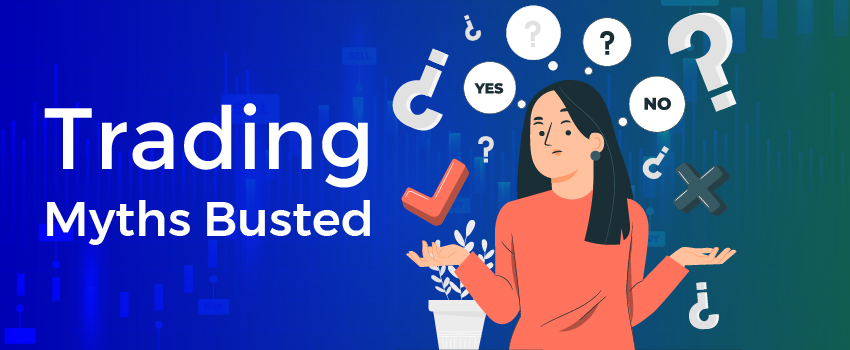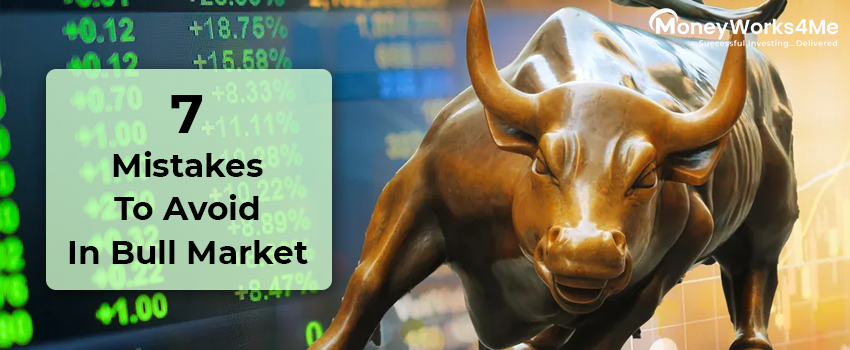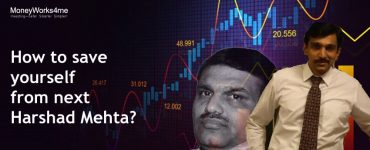In the fifth article of our Series on ‘The Most Important Thing’, we show you why if a certain investment is too good to be true, it probably is…
Time and time again, the post-mortems of financial debacles include two classic phrases: “It was too good to be true” and “What were they thinking?”
Why do we investors keep making such mistakes repeatedly? Because investing is an action undertaken by human beings, most of who are at the mercy of their psyches and emotions. According to Marks, there are four important emotions that govern our behaviour:
- Greed: The first emotion that serves to undermine investors’ efforts is the desire for money, especially as it transforms into greed. Most people invest to make money. There’s nothing wrong with trying to make money. Indeed, the desire for gain is one of the most important elements in the workings of the market and the overall economy. The danger comes when it moves on further to greed. Greed is an extremely powerful force. It’s strong enough to overcome common sense, risk aversion, caution, logic & all the other elements that might otherwise keep investors out of trouble.
- Fear: In the investment world the term doesn’t mean logical, sensible risk aversion. Rather, fear— like greed— connotes excess. Fear is overdone concern that prevents us from taking constructive action when we should.
- Tendency to dismiss logic, history and time-honoured norms: This tendency makes us accept unlikely propositions that have the potential to make us rich
- Following the herd: Participating in the extremes of cycles can be dangerous for our financial health
- Envy: We might be perfectly happy with our lot in isolation but become miserable when we see others do better. In the world of investing, most people find it terribly hard to sit by and watch while others make more money than they do.
- Ego: The best returns bring the greatest ego rewards. When things go right, it’s fun to feel smart and have others agree
- Capitulation: Investors hold to their convictions as long as they can, but when the economic and psychological pressures become irresistible, they surrender and jump on the bandwagon
To avoid losing money in bubbles, the key lies in refusing to join in when greed and human error cause positives to be wildly overrated and negatives to be ignored.
When a market, an individual or an investment technique produces impressive returns for a while, it generally attracts excessive (and unquestioning) devotion, thus seeming to become the “silver bullet”. But the silver bullet doesn’t exist. No strategy can produce high rates of return without risk. And nobody has all the answers; we’re all just human. Markets are highly dynamic, and, among other things, they function over time to take away the opportunity for unusual profits. Unskeptical belief that the silver bullet is at hand eventually leads to capital punishment
Every time a bubble bursts, a bull market collapses or a silver bullet fails to work, we hear people bemoan their error. The skeptic, highly aware of that, tries to identify delusions ahead of time and avoid falling into line with the crowd in accepting them. So, usually, investment skepticism is associated with rejecting investment fads, bull market manias and Ponzi schemes.
In dealing with the future, we must think about two things: (a) what might happen and (b) the probability that it will happen.
The process of investing requires a strong dose of disbelief. . . . Inadequate skepticism contributes to investment losses. But Skepticism and pessimism aren’t synonymous. Skepticism calls for pessimism when optimism is excessive. But it also calls for optimism when pessimism is excessive.
The error is clear. The herd applies optimism at the top and pessimism at the bottom. Thus, to benefit, we must be skeptical of the optimism that thrives at the top, and skeptical of the pessimism that prevails at the bottom.
Whenever the market collapses, for example, most people say, “We’re not going to try to catch a falling knife; it’s too dangerous.” They usually add, “We’re going to wait until the dust settles and the uncertainty is resolved.” What they mean, of course, is that they’re frightened and unsure of what to do. The one thing I’m sure of is that by the time the knife has stopped falling, the dust has settled and the uncertainty has been resolved, there’ll be no great bargains left.
It’s our job as contrarians to catch falling knives, hopefully with care and skill. That’s why the concept of intrinsic value is so important.
The process of intelligently building our portfolio consists of buying the best investments, making room for them by selling lesser ones, and staying clear of the worst. The raw materials for the process consist of (a) a list of potential investments, (b) estimates of their intrinsic value, (c) a sense for how their prices compare with their intrinsic value, and (d) an understanding of the risks involved in each, and of the effect their inclusion would have on the portfolio being assembled.
But what is it that makes something the superior investment we look for? As mentioned in our previous Blog, it’s largely a matter of price. Our goal isn’t to find good assets, but good buys. Thus, it’s not what you buy; it’s what you pay for it!
So the goal is clear – find under-priced assets. But where should we look for them?
Marks’ gives us a good idea of where to start by asking us to look among things that are:
- little known and not fully understood;
- fundamentally questionable on the surface;
- controversial, unseemly or scary;
- deemed inappropriate for “respectable” portfolio
- unappreciated, unpopular and unloved;
- trailing a record of poor returns; and
- Recently the subject of disinvestment, not accumulation.
However, what we should always remember is that, many of the “special deals” we’re offered are too good to be true, and avoiding them is essential for investment success.
It’s obvious that investors can be forced into mistakes by psychological weakness, analytical error or refusal to tread on uncertain ground.
Those mistakes create bargains for second- level thinkers capable of seeing the errors of others.
If you liked what you read and would like to put it in to practice Register at MoneyWorks4me.com. You will get amazing FREE features that will enable you to invest in Stocks and Mutual Funds the right way.
Need help on Investing? And more….Puchho Befikar
Kyunki yeh paise ka mamala hai
Start Chat | Request a Callback | Call 020 6725 8333 | WhatsApp 8055769463









